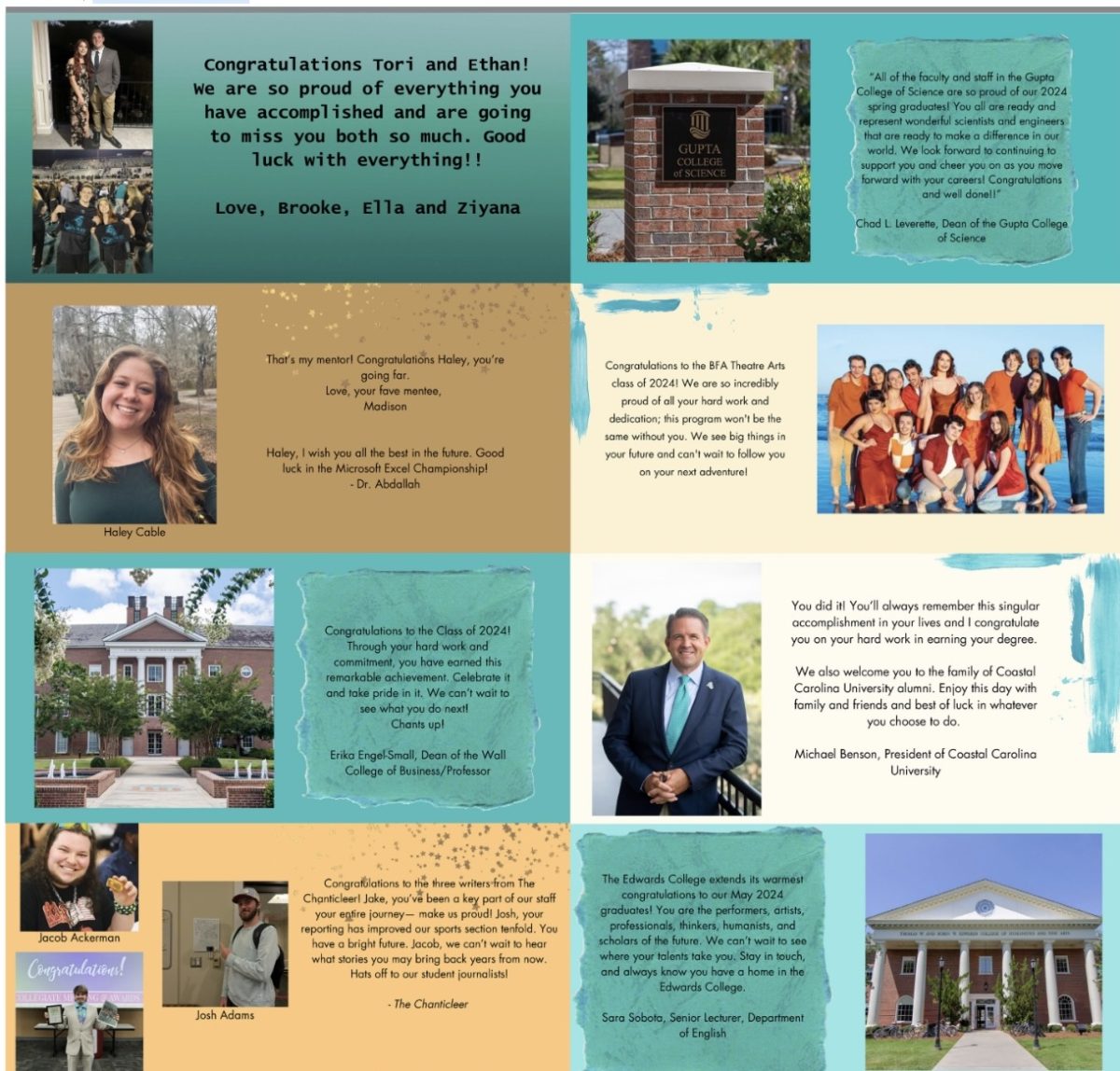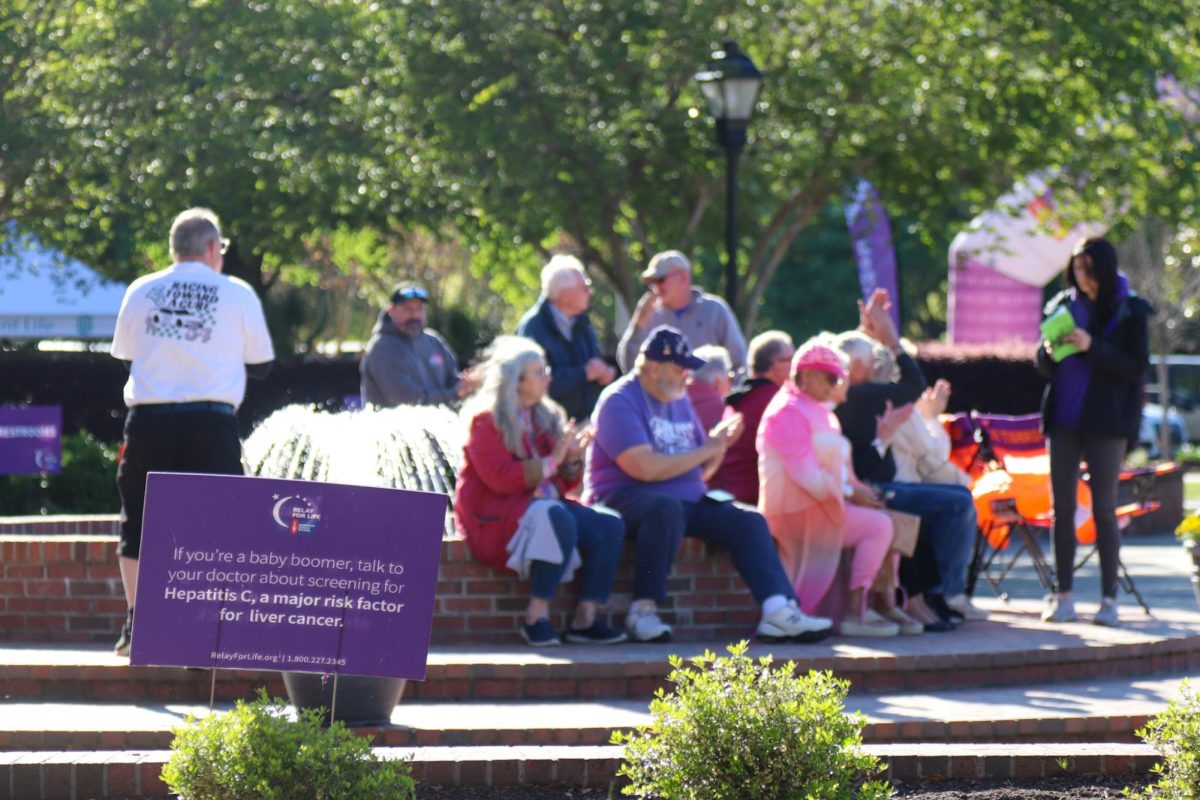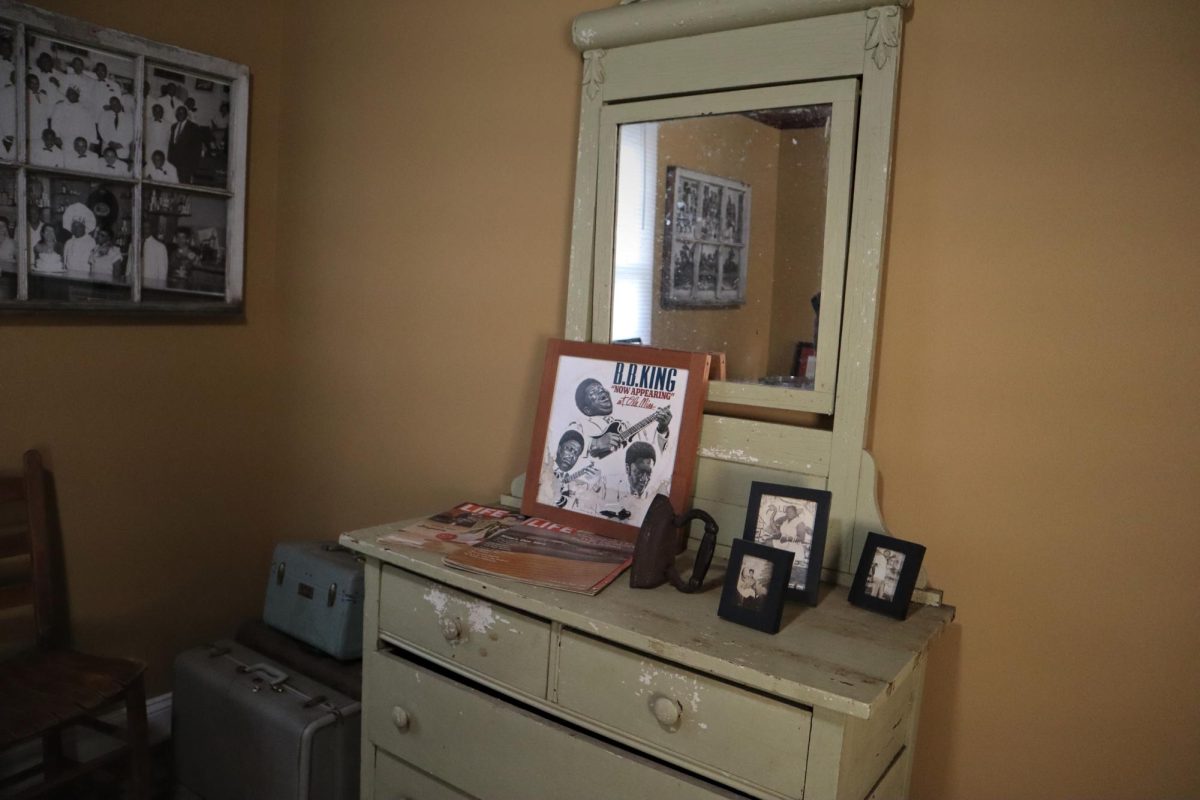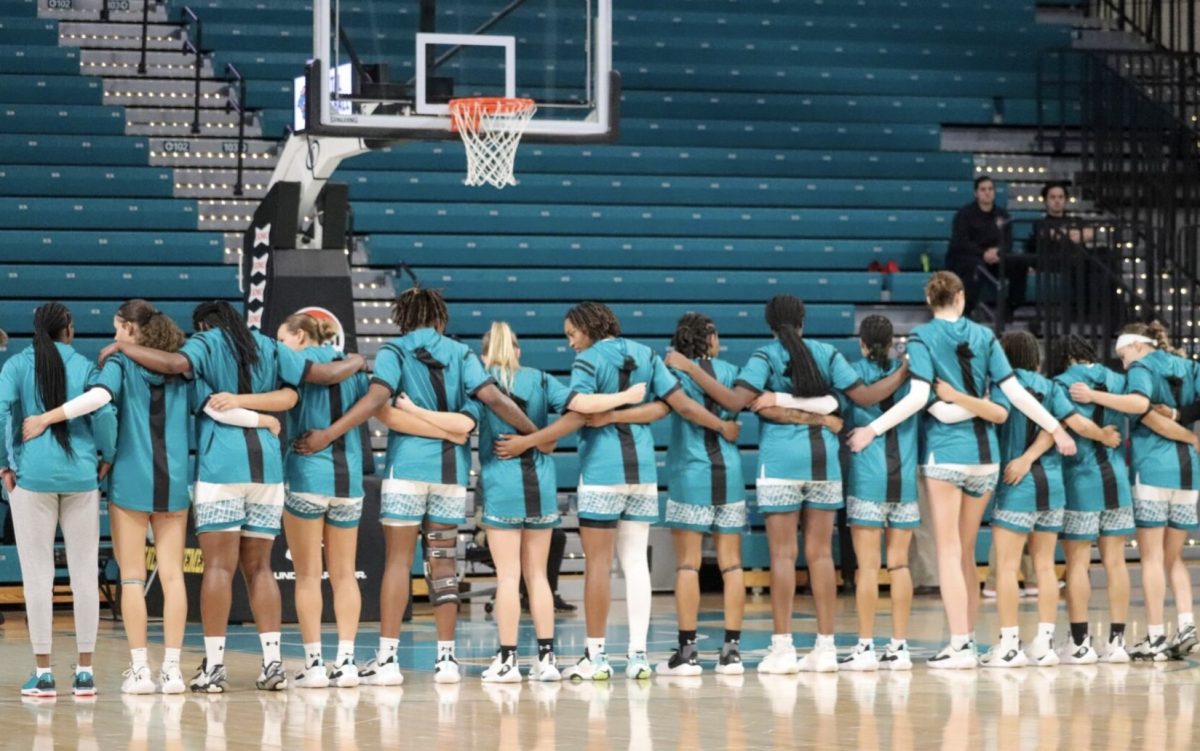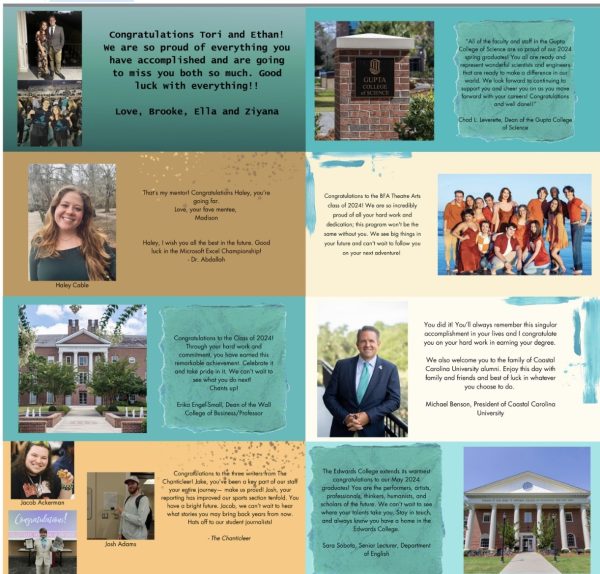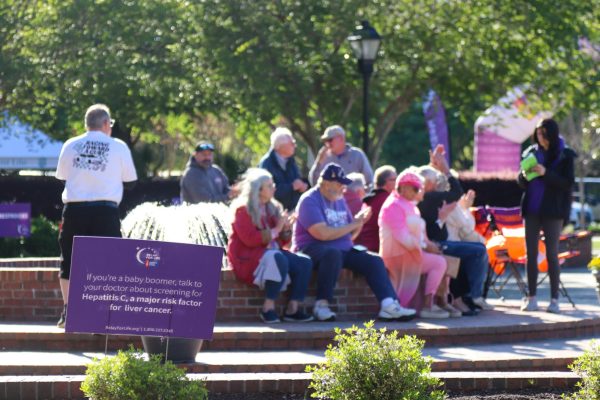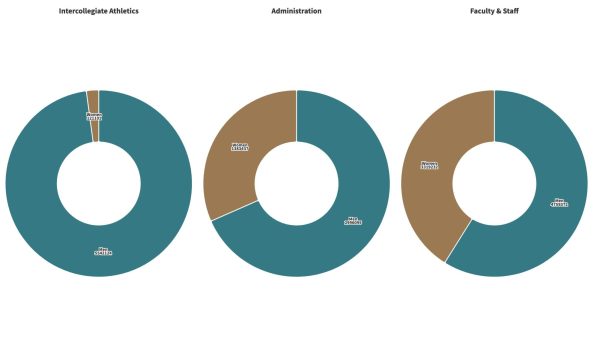Worth more than just a penny: What the renewal of the Penny Sales Tax in Horry County means for CCU
The renewal of the Penny Sales Tax over winter break means a new building name, more money, and future projects for Coastal Carolina University (CCU).
The Penny Sales Tax, officially known as the Education Capital Improvement Sales and Use Sales Tax, funds improvements and facilities for the Horry County School District as well as Horry Georgetown Technical College (HGTC) and CCU.
CCU President Michael Benson said about 70% of voters, or 80,000 people, in Horry County renewed the 1% tax this past November until 2039.
“I think one of the most important things to remember is that is a huge vote of support of confidence in education in our county, and we should be very proud of that,” Benson said.
Although Horry County residents were the ones who voted on the policy, those who do not own property here are the ones who pay up. Benson said 60% of “the penny” is paid by out-of-state visitors who make up 52% of CCU’s body.
The tax applies to purchases of items such as alcoholic beverages, prepared hot or cold foods, ready-to-drink beverages, vitamins and soap, as stated on coastal. edu.
According to Coastal’s website, the University bonded debt in order to pay for and create spaces on campus before the sales tax was approved in 2008. Without the Penny Sales Tax, this means the cost for students would rise.
Student Government Association’s Vice President of Finance Ryleigh Gregory said she would rather pay the tax than
more fees.
“It doesn’t bother me personally. We’re
here temporarily. We’re not residents. Unless we buy a home while we’re down here,” Gregory said. “And then that means paying a little bit in extra tax versus $200 to $400 in student fees, I’d rather do that.”
Since 2008, CCU has received more than $133 million to renovate and introduce new academic buildings to campus, according to Coastal’s website.
With these funds from the Penny Tax, the University implemented buildings which students, faculty and staff use regularly today. These buildings include:
- HTC Recreation & Convocation Center (2012)
- Brittain Hall (2012)
- Central Energy Plant (2013)
- Science Annex II (2016)
- Academic Classroom Building II (2017) · Thompson Library (to be completed by August 2024)
- Other: Hackler Golf Course, Human Resources Building, Student Health Center, Atlantic Hall, Coastal Science Center
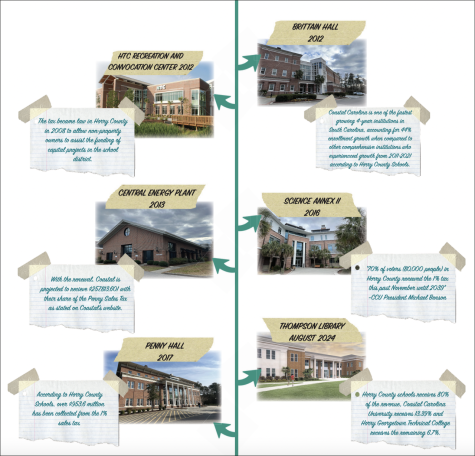
Benson said the University has seen an average 6% annual growth in population. He said he projects $2 billion from the Penny Sales Tax, where Coastal’s share of 13.3% will total to about $266,000,000 of the revenue. 80% goes toward Horry County Schools and the remaining 6.7% to HGTC.
“We’re the only university in the state that has this advantage. That is a tremendous advantage for us,” Benson said. “I just
can’t overstate how important this is to us moving forward.”
SGA’s Executive Vice President Gabrielle Ryder said the tax is important to CCU since the college has grown exponentially.
“It is only through things such as the Penny Sales Tax that we’ve been able to do that. I think the goal for everyone is to have Coastal have a bigger presence nationally,” she said. “We’re only able to do that with the funds and to be able to really put us on the map.”
The Penny Sales Tax can only be used to pay for academic buildings at any school in Horry County for lower and higher education. Coastal.edu said salaries, instructional materials, supplies and other day-to-day expenses are not funded. However, Benson said revenue streams may be used to pay for athletic facilities.
“I think it’s really nice to see things that are dedicated purely to academics,” Ryder said. “The bottom line is when we’re going to get upgrades and make things better on campus, students don’t have to pay for it.”
In honor of the renewal, Academic Office and Classroom Building II (referred to as AOC 2) was renamed to “Penny Hall” on Dec. 13, 2022. Benson said the name will serve as a thank you to everyone who voted in favor of the renewal of the Penny Sales Tax.
The ceremony will consist of elected officials from the state, Conway City Council, county commissioners, and CCU students, faculty and staff. The date is to be determined.
“It’s gonna be a great celebration. I can’t wait to pull the cover off the name Penny Hall,” Benson said.
He said individuals such as former Executive Vice President and Chief Operating Officer at CCU Eddie Dyer and former CCU President David DeCenzo helped put the option on the ballot.
Ryder said she overall is pleased with the renaming of the AOC 2 building.
“I think it pays really good homage to the fact that the local government cares so much about higher education because I mean, that’s what all the money goes towards,” she said.
Benson said he and other campus officials are currently creating the campus master plan.
Gregory said at the end of the day, SGA does not get to decide the future planning of CCU but they have the privilege to hear the plans. She said one of the main complaints SGA receives is about the parking for students on campus.
“We hear so many complaints about parking that I think it’d be amazing to see the Penny Tax, or even other funding the school gets, go towards something meaningful for the students,” Gregory said.
The president said some of the projects planned in the future include a new home for the College of Health and Human Performance, an expansion of Lib Jackson Student Union, and a center for the arts.
“That’s one thing we don’t have in our county—a center where people can come and hear a concert, or see a play, or hear a lecture, and our student groups can perform,” Benson said. “There will be a black box theater and a space to display artwork.”
Benson said the University has one chance to create spaces for students and they want to do it right.
